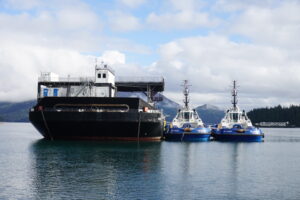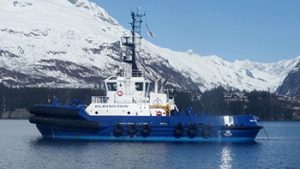Council report documents the history and intent behind Alaska’s standard for spill response planning
Alaska, and Prince William Sound in particular, is known for its world-class oil spill prevention and response system. But it wasn’t always that way. In March of 1989, when the Exxon Valdez ran aground and spilled an estimated 11 million gallons of crude oil, responders were ill-prepared.
“Nothing arrived. There was nothing there.”
– Marilyn Heiman
Staff member for the Alaska House Resources Committee,
on the experience of waiting days for equipment to arrive.


